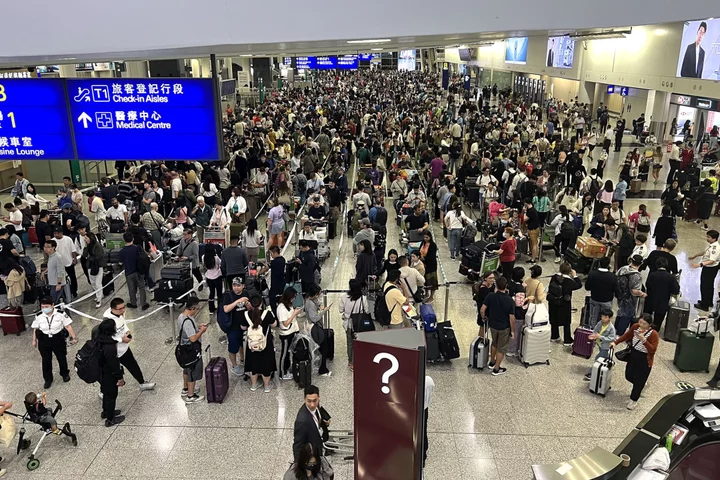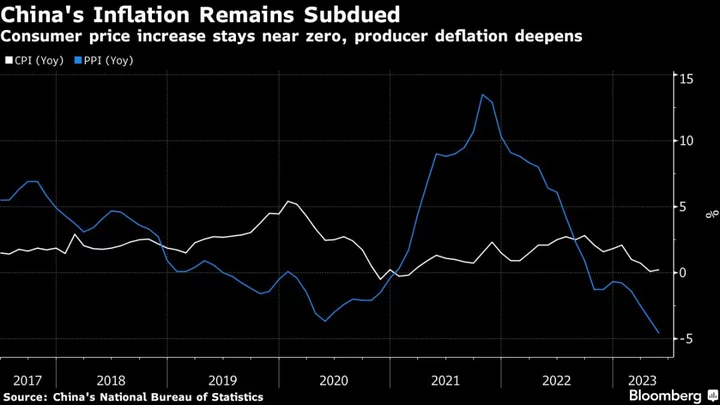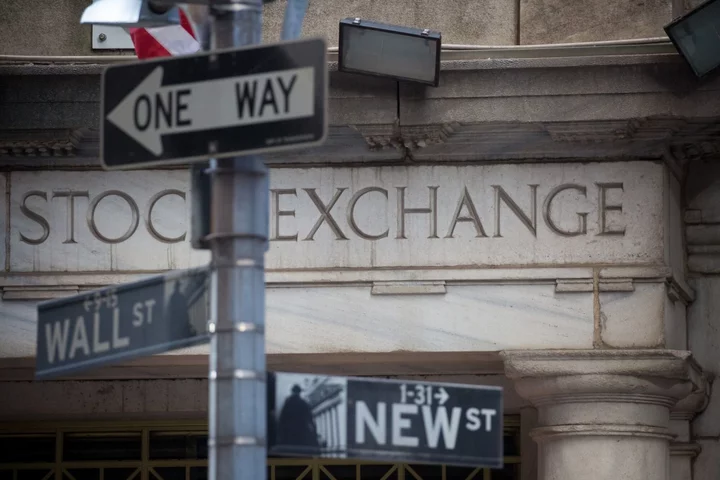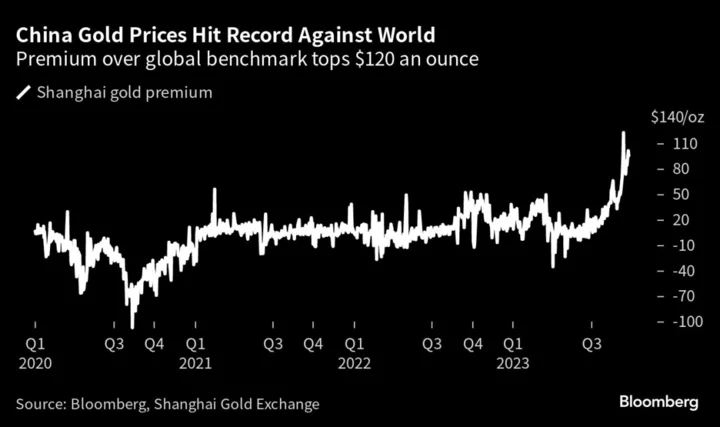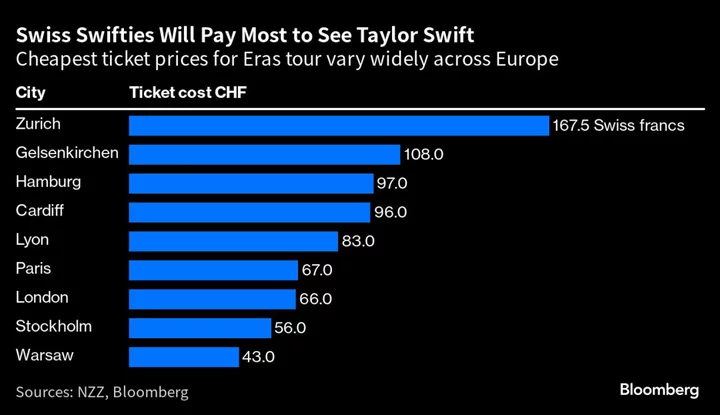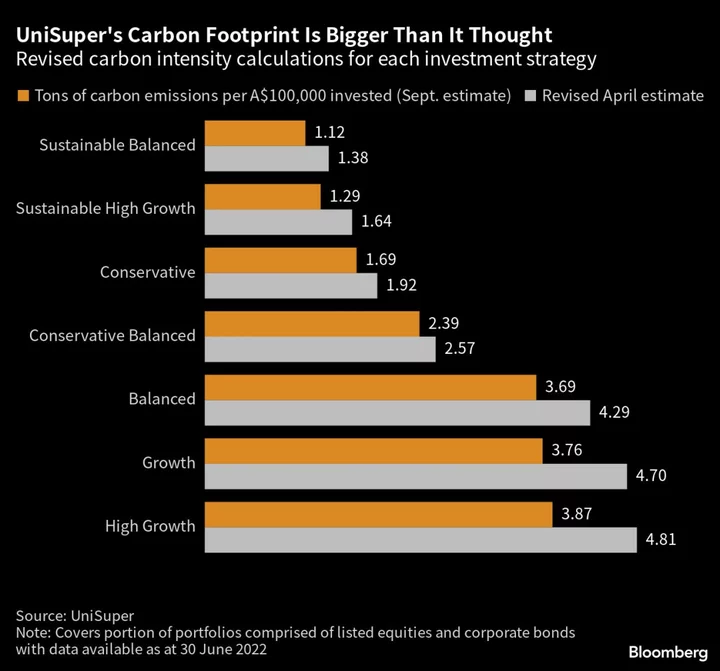Hong Kong was set to stay closed Monday morning, with stock market trading halted and schools suspended, as Typhoon Koinu brought storm-force winds and torrential rain to the finance hub.
The Hong Kong Observatory said the No. 8 storm warning — the third-highest — would remain in place until 11:40 a.m. as winds weaken. That alert replaced the more serious No. 9 signal, which lasted for almost five hours Sunday night. The weather agency also issued its highest black rainstorm warning at 4 a.m.
Koinu was centered about 110 km (68 miles) southwest of the city at 6 a.m. and was forecast to move west at about 10 km per hour. It’s the second typhoon to hit the city since the start of September, while the remnants of a third a month ago brought record-breaking rain that flooded parts of the finance hub and triggered landslides.
Trading on the city’s $4.8 trillion stock market will resume trading at 2 p.m. if the No. 8 signal is lowered between 11:30 a.m. and midday, under the exchange operator’s rules. That’s unless the black rainstorm warning remains in place. The disruption comes as mainland China’s stock markets reopen for the first time this month after the Golden Week holidays.
The unpredictable typhoon dumped more than 200 mm of rain on urban areas and Tsueng Kwan O since midnight. The Observatory warned more was on its way, with Koinu’s rain bands extending 200 km east of its center.
Hundreds of passengers at the city’s airport were stranded on Sunday night after the raising of the No. 9 signal caused rail operator MTR Corp. to halt train services between the airport and the city. The service resumed in limited fashion after midnight. Under the No. 8 warning, most public transport is suspended and workers typically stay home. The black rainstorm warning has a similar impact.
While an average of six typhoons come within 500 km of Hong Kong every year, it’s rare for a tropical cyclone to directly threaten the city, let alone two. The last time Hong Kong issued the No. 9 signal for two different typhoons in the same year was in 1999, when the finance hub was hit by Maggie and York. Before that, it was 1964, when Ruby and Dot slammed the British colony.
Koinu, which means puppy in Japanese, repeatedly defied forecaster predictions after earlier brushing past the southern tip of Taiwan. Despite projections by regional observatories that the storm would weaken, Koinu rebuilt its eyewall and regained strength.
--With assistance from Tania Chen and Shiyin Chen.

